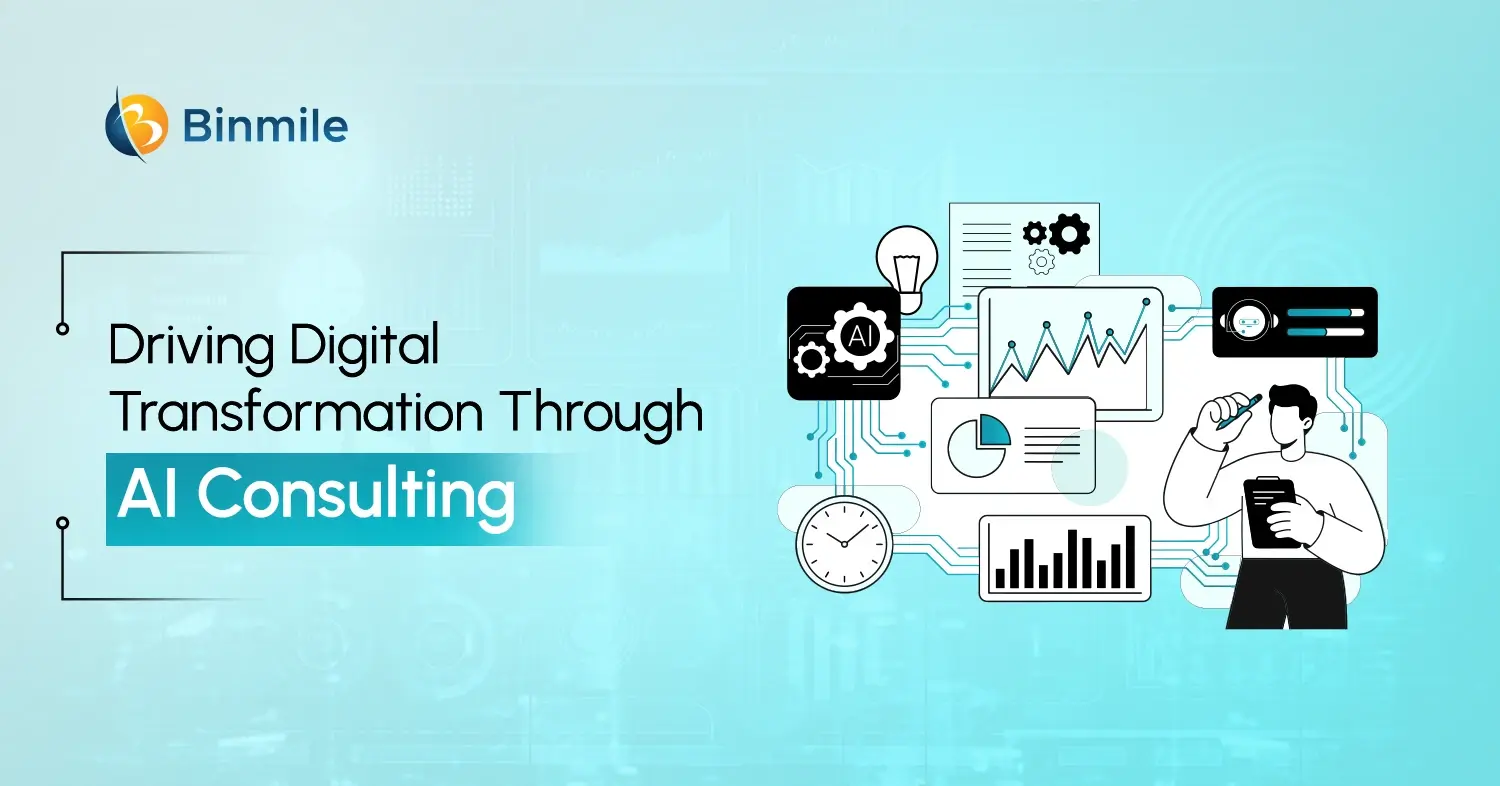AI in patient care means transformative penetration of artificial intelligence in the medical and healthcare industry. In fact, the technology is reportedly laying the groundwork for better productivity and efficiency of care delivery, capacitating healthcare systems to provide better patient care.
The transformative technology of AI is actually the constituent of many key components, such as –
- Machine learning
- Natural language processing (e.g. speech recognition, named identity recognition, etc.)
- Computer vision
- Deep learning
- Generative models
These technologies collectively define the core competencies of artificial intelligence. Application areas of them involve various industrial segments. Here, we are talking about how AI is making breakthroughs in patient care, meaning the transcendental value of technology in revolutionizing the healthcare systems.
AI in Patient Care – Statistical Overview
The value of the healthcare market size globally was expected to be around $15.4 billion in 2022. It is expected to grow at a CAGR of 37.5% from 2023 to 2030. The joint report with the European Union’s EIT Health has highlighted the significance of artificial intelligence in healthcare services. For example, technology can afford the next level of efficiency and boost productivity in the healthcare systems.
The report by Statista is another example of the increasing superiority of AI, in terms of revenue performance. It states that the technology in the healthcare market was valued at around $11 billion globally. In addition, the report predicts the worth of the global healthcare AI market to be around 188 billion U.S. dollars by 2030.
So, based on the report, the worth of the AI market in healthcare globally is increasing at a CAGR of 37% during the forecast period of 2022-2030. A report slightly different from Statista, states that the valuation of AI in the healthcare market size was around USD 15.1 billion in 2022. It is likely to grow $187.95 billion by 2030, thereby increasing at a CAGR of 37% during the forecast period of 2022 to 2030.

AI In Patient Care – The Role Of AI In Augmenting Stem Cell Therapy
Stem cell therapy or regenerative cell therapy is a medical operation of treating or preventing a disease or health condition using stem cells. In other words, the therapy attempts to fix or replace the problematic tissues in the body with the help of stem cells.
A revolutionary step in organ transplantation, stem cell therapy basically focuses on using easy-to-create cells, meaning the cells are generated in the lab for therapy. AI, in the context of augmenting stem cell therapy, is quite a helpful technology. Based on its potential, the technology can innovate stem cell therapy by helping clinicians optimize the treatment for patients.
AI In Patient Care – How Will AI Help in Stem Cell Therapy?
1. Recognizing The Stem Cells Best Suited To Treat A Particular Disease

Though stem cell therapy is considered revolutionary in organ transplant, it is not without some challenges. One of them is identifying the right and effective type of stem cells to treat a particular disease or injury. That’s because the number of stem cells is uncountable, and each endows its unique characteristics and potential applications. AI steps in as a great and helpful technology for clinicians, helping them recognize the most effective and promising types of stem cells.
For this, the technology makes a meticulous analysis of considerably large datasets of stem cell research. Thereafter, it identifies the patterns and correlations that human researchers may have missed. It doesn’t mean to question the acuity of human researchers but to establish the fact of how involving AI in something as delicate and meticulous as stem cell therapy is significant. For example, it would not only mean identifying patterns without fail but also ensuring human researchers make advancements in treating diseases.
2. Better Monitoring in The Progress of Therapy
Stem cell therapy has a better chance for success depending on how stem cells differentiate into the desired cell types. The role of artificial intelligence, in this regard, is quite substantial, as it will help clinicians monitor stem cell differentiation. It will involve analyzing medical imaging scans and diverse data to monitor the progress of the therapy. Clinicians will then get the benefit of adjusting the therapy as needed to ensure the differentiation of stem cells as expected.
3. Personalizing Therapy for Individual Patients
Why the role of AI in stem cell therapy is substantial stems from its ability to personalize the therapy for individual patients. Here, the power of artificial intelligence lies in meticulously analyzing patient data, including medical history and genetic information.
Clinicians using AI will be able to recognize the stem cells deemed effective.
Moreover, they can also understand how to monitor stem cell differentiation for individual patients. Therefore, the personalized approach facilitated by artificial intelligence will drive improvement in the success rate of stem cell therapy. Moreover, it will also pan out a great reduction in the risk of side effects regarding stem cell therapy.
Also Read: AI in Medical Transcription Software
Final Words
Artificial intelligence is delivering transformative impacts on healthcare. Speaking of stem cell therapy, the role of AI is considered extremely important. In other words, it will not only help clinicians identify the most effective type of stem cells to treat a particular disease, but it will also ensure better monitoring in the process of the therapy. One of the biggest advantages of artificial intelligence would be personalizing stem cell therapy for individual patients. For example, it will enable clinicians to understand how to monitor stem cell differentiation for patients.
No doubt, implementing AI in patient care has some challenges. For instance, lack of a huge volume of high-quality data and sophisticated AI algorithms. However, we can’t afford to ignore the potential benefits of AI-assisted stem cell therapy in the future. If used creatively, the technology would undoubtedly improve the success rate of stem cell therapy. Companies can also leverage the potential of artificial intelligence using AI-powered apps. Good news is, Binmile stands globally reputed in the field of custom healthcare software development solutions with quality at par with global standards.
Frequently Asked Questions
Cell therapy software is a specialized type of software designed to support the development, manufacturing, and management of cell-based therapies. These software solutions provide tools and features tailored to the unique requirements of cell therapy research, clinical trials, regulatory compliance, and patient management.
Key features of cell therapy software may include:
- Patient data management: Tracking patient information, medical histories, treatment plans, and outcomes.
- Laboratory management: Managing laboratory workflows, sample tracking, and quality control processes.
- Inventory management: Tracking cell lines, reagents, and other materials used in cell therapy production.
- Regulatory compliance: Ensuring adherence to regulatory requirements, such as Good Manufacturing Practices (GMP) and Good Clinical Practices (GCP).
- Quality assurance: Monitoring and documenting quality control measures, deviations, and corrective actions.
- Clinical trial management: Facilitating the design, execution, and monitoring of cell therapy clinical trials.
- Electronic data capture: Capturing and storing data from clinical trials, experiments, and patient encounters electronically.
- Data analysis and reporting: Analyzing data, generating reports, and visualizing trends to support decision-making and regulatory submissions.
- Integration with other systems: Integrating with electronic health records (EHR), laboratory information management systems (LIMS), and other relevant systems to streamline data exchange and interoperability.
Stem cell therapy is a regenerative medical treatment that uses stem cells to repair, replace, or regenerate damaged tissues and organs in the body. Stem cells, which are undifferentiated cells capable of developing into various cell types, have the potential to promote healing and tissue regeneration in conditions ranging from injuries and degenerative diseases to chronic conditions.
Stem cell therapy works by harnessing the regenerative potential of stem cells to promote tissue repair and regeneration. The process typically involves isolating stem cells from a patient’s own body (autologous stem cells) or from donor sources, such as umbilical cord blood or bone marrow. These stem cells are then processed and injected or implanted into the affected area, where they can differentiate into specialized cell types and promote tissue healing and regeneration.









